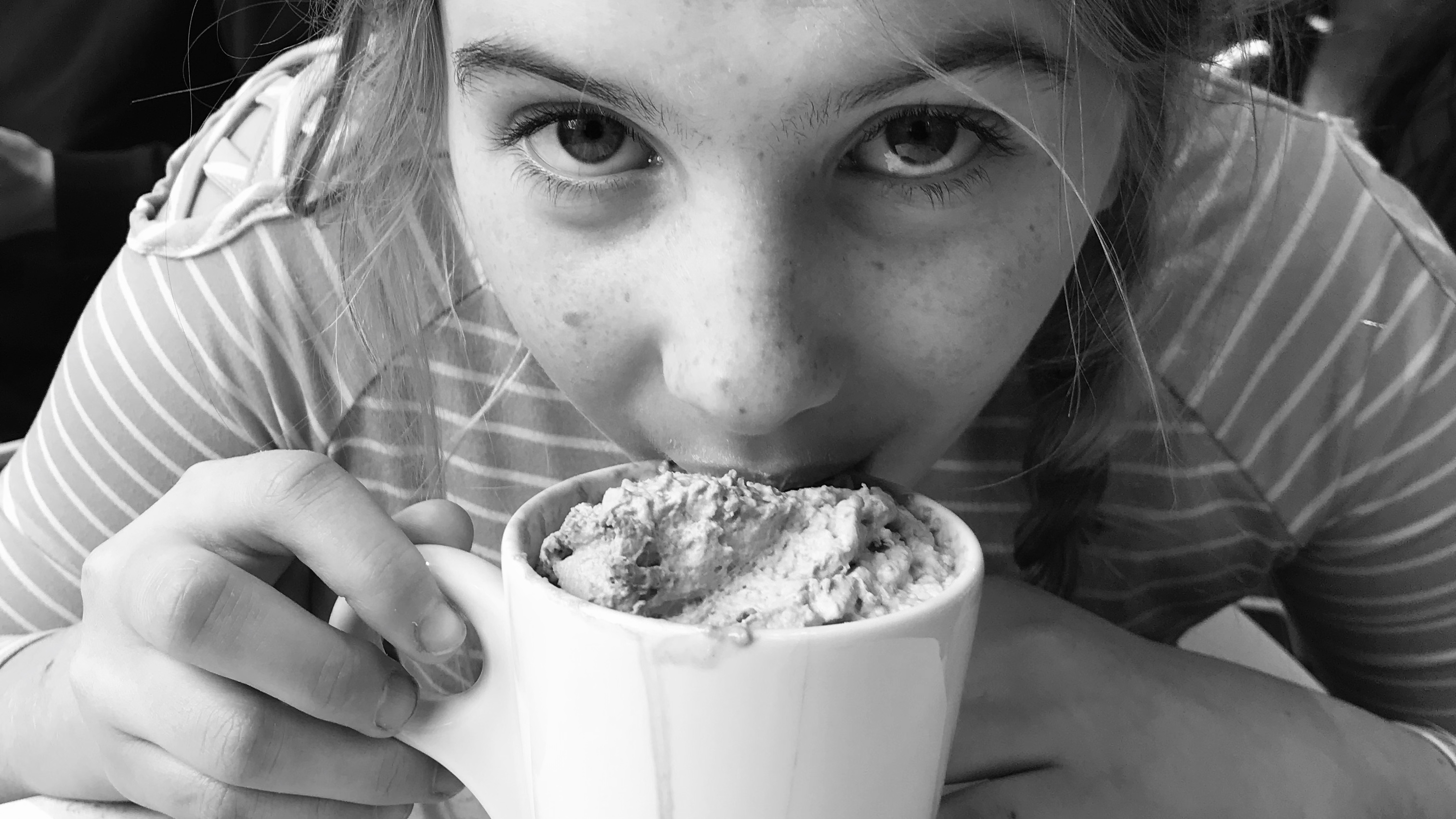Welcome to our special section, Thrive on Campus, devoted to covering the urgent issue of mental health among college and university students from all angles. If you are a college student, we invite you to apply to be an Editor-at-Large, or to simply contribute (please tag your pieces ThriveOnCampus). We welcome faculty, clinicians, and graduates to contribute as well. Read more here.
These past two weeks, I’ve kept my phone on my desk during class, just to click the home button when I zone out. Immediately, I see my second sister’s hot-chocolate-covered face gazing up at me. If I close my eyes, I can hear her laugh, feel the ever-present tangles in her unbrushed hair, and see the stony composure that settles over her features when she’s talking about something a little too serious for a 10-year-old to think about. As a fifth-grader, she’s sure she understands the ways of world already. Sometimes, however, she does need a little help clarifying the details.
These details cover a range of moments in our lives: from the dash of ginger that makes perfect blondies, to the painstaking hours spent teaching long division, regardless of the “new math” that’s rising in popularity. Families are built through weaving together these little moments into strong and durable fabrics that escape the harshest of storms unscathed. Just a train ride away, I can feel my edges begin to fray when I’m at school, missing out on the little moments.
I thought being home for winter break would alleviate some of these concerns. I should have been grateful that I finally got my first sister to cooperate with the doctor, and honored to be a supporting actress in my third and fourth sisters’ Christmas Eve play. I should have lost myself in the excitement of my oldest brother’s basketball games and fawned happily over my youngest brother’s new dance moves. Instead, I couldn’t help but notice the inches that had crept up my siblings’ spines while I was away, or the slightly incorrect (but very impressive) addition of new vocabulary words to each child’s mental lexicon. Somehow, my family had managed to grow and change without me there to oversee them.
Family is a complex and dynamic word, the definition of which differs for each individual. For me, the family model represents a system of support, socialization, and caring between individuals that should model idealized interpersonal relations in society. It is an organism which represents love, tenderness, and intimacy. It is comprised of moments that illustrate all types of social interaction — fiery debates, apathetic comments, well-intentioned teasing that goes too far, and forgiveness.
A few days ago, I learned that I couldn’t apply for a summer position in Philadelphia this summer, and will have to stay in New York to do research for my senior thesis. Yet, the intense gratitude I have for my education (and the myriad opportunities this education has afforded me) were immediately overwhelmed by discontent. It was more than the simple guilt of an older sister feeling obligated to spend time with her siblings. No, this was both more selfish and ideological — a dissatisfying analysis of opportunity cost.
I am told, repeatedly, by my peers and my advisors, that I am allowed to “choose myself.” Dedicating these four years of my life to my future, rather than my family, is expected and essential — as if determining the trajectory of my own life could occur in a vacuum from the people that defined it. In response, I ask: What could possibly be more important than supporting the lives of the people you spent your existence learning how to love?
The decision to go away for school seems arbitrary and obtuse if I come back and my three-year-old brother doesn’t immediately run to hug me, because it’s been a while and I cut my hair. To put it plainly, it feels wrong to choose academics over affection — as if I am taking a personality test, and choosing to be smart rather than kind. Deep down, I do genuinely believe that my degree is less important than maintaining deep, detailed relationships with the people I love most. Still, especially on a campus as rigorous as Columbia’s, there is a nearly constant pressure to dissolve into the semester and ignore any innate drive to prioritize your social bonds.
So, this is both a reminder and a request: ignore that pressure. Rise above it. Call your mom, your dad, your siblings, grandparents or cousins. Even when you’re worn down, when it seems the hardest — please make an effort to mend any holes peeking through, to reinforce your stitches, and to remember the details.
Subscribe here for all the latest news on how you can keep Thriving.
More on Mental Health on Campus:
What Campus Mental Health Centers Are Doing to Keep Up With Student Need
If You’re a Student Who’s Struggling With Mental Health, These 7 Tips Will Help
The Hidden Stress of RAs in the Student Mental Health Crisis


